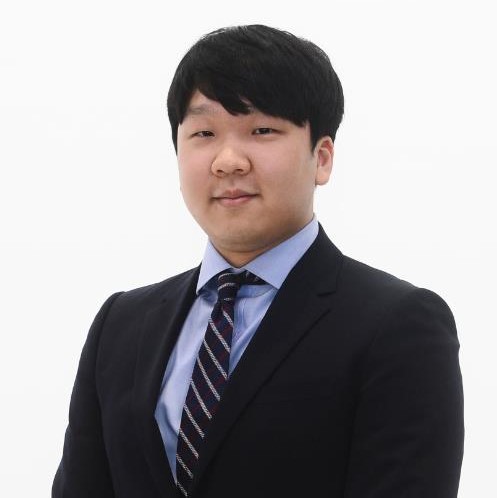[Eye Interview] From foreigner to neighbor
Arguably the most famous Indian-born Seoulite, Lucky recalls his 28 years in South Korea, shares thoughts about the future
By Lee Si-jinPublished : Jan. 13, 2023 - 20:17

When he took his first step on Korean soil in 1996 to study in here, Abhishek Gupta, more widely known as Lucky, could not have imagined himself staying for more than 25 years.
“Back in the day, many of my friends went to English-speaking countries like the UK, the US or Canada to study abroad. I wondered why my parents sent me to Korea,” Lucky said in a recent interview with The Korea Herald. “But any 19-year-old loves to travel outside, don’t they? I was one of them, who was excited to go outside of India.”
After a tough first year in the foreign country, Lucky said that he started getting used to the food, language, and enjoyed various experiences, making his life in Korea more enjoyable.
“I have experienced many interesting things -- like visiting popular places to see the first sunrise of the new year and making New Year’s wishes -- that are unique in Korea. I have been there and done it all when I was young,” he said, his face beaming.
Starting as a student at Seoul National University’s Language Education Institute, Lucky became one of the few foreign-born TV personalities in the early 2000s, starring in the hit SBS period series “Rustic Period” (2002-2003) as a supporting character and on KBS’ morning show as a reporter. Even then, he did not think of staying in Korea for long or taking a naturalization test. Lucky said that he has one more exam left to become a naturalized citizen of Korea.
“TV programs featuring foreigners were not a major trend at first. Our roles were very limited and I wasn’t even a professional TV personality. But everything changed after my decision to start a sesame business in Korea,” he said.
Lucky explained that his native country of India is one of the world’s biggest sesame producers. As Korea is a huge sesame market, he felt that he could find a stable life with a regular income if he worked hard enough.
“Though I stayed in Korea to grow my business, I got an unexpected opportunity to star in a local talk show, ‘Wednesday Foodtalk,’ to share my thoughts about curry. This actually led me to become one of the cast members in JTBC’s hit program ‘Abnormal Summit,’ which gave me huge popularity from Korean viewers,” he said.

The 44-year-old CEO of the trading company IndiAgro and TV personality said that his life in Korea is no longer about making a living, but rather focused on ways to expand intercultural understanding between India and Korea.
Lucky was named an honorary Seoul citizen, recognized for his contribution to raising the city’s profile at home and abroad, in December 2022.
While he is honored to have received such recognition, Lucky said it all feels a little unreal. "I believe the officials at Seoul Metropolitan Government are expecting me to work harder for cultural exchange between the two countries,” he said.
With a YouTube channel named “354,” which was launched in May 2020 to quench the thirst of passionate travel lovers who wished to visit Korea amid the COVID-19 pandemic, Lucky hoped to present lesser-known yet interesting aspects of Korea.

Lucky felt that Korea is no longer a country that needs explaining.
“Recently, I went to India for the first time in almost four years. I was surprised to know that many people were enjoying different (aspects of) Korean culture of their choosing, from music to dramas and food,” Lucky said. “I never knew about Indian people’s love for Korean ramen.”
Proud of his culture and heritage, Lucky seeks to promote various aspects of India to many Korean people as well.
Expecting more foreigners to show interest in Korea and visit the country, Lucky feels that there is still room for improvement to allow new lovers of Korea to enjoy the country to its fullest.
“Racism was in the past and I still experience discrimination nowadays. This is, of course, not the case only in Korea. And I believe intercultural communication can bring people closer together, allowing them to truly understand each other,” he said.
The Indian-born Seoulite shared that many foreigners, including Alberto Mondi -- Lucky’s colleague from JTBC’s talk show “Abnormal Summit” (2014-17) -- seem to have difficulties with local mobile phone services such as Kakao Bank, Kakao T and more.
“When foreigners are signing up for additional Kakao services, they have to go through the identity verification process via mobile phone operators. The names need to be written with correct spacing and capital letters, identical to the ones that you wrote when first registering at a local mobile service carrier,” Lucky said. “They are a little bit more complicated than for Korean users, whose names consist, in most cases, (of) three characters.”
Lucky recalled his experience of possibly becoming one of the first foreigners to use Cyworld, a popular South Korean social network service and a rough equivalent to MySpace in the US prior to Facebook. Back then, he had to send copies of his passport and alien registration card to the service office to register. Reflecting on all of the changes since then, Lucky said he wished to pave the way for the younger generation.
“If I can halve the difficulties that I have experienced in the last 25 years for an Indian visitor -- or any other foreigner -- who will come to Korea 10 years later, it would be a great gift to them,” he added. “I hope to contribute my ability in many ways.”


















